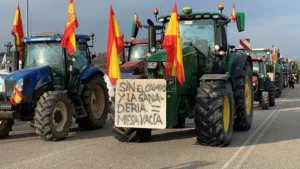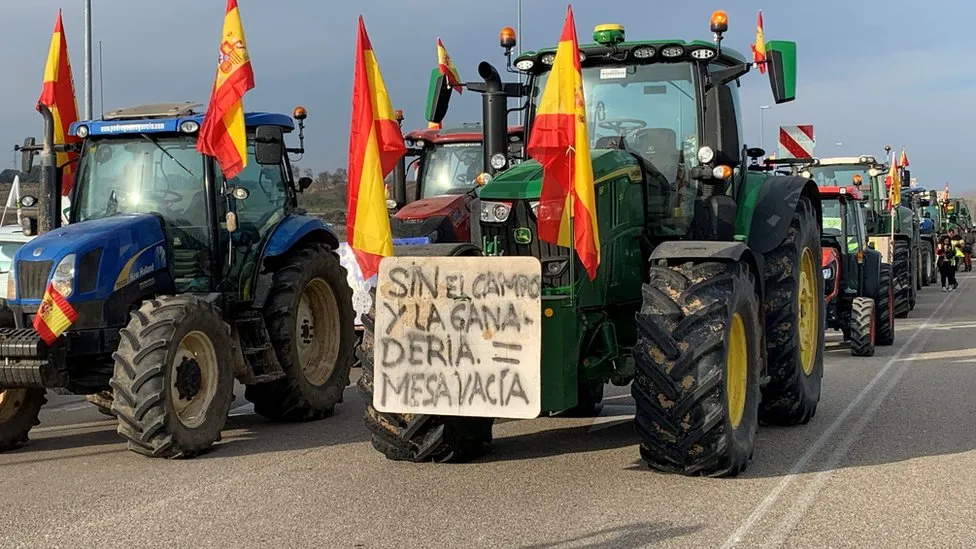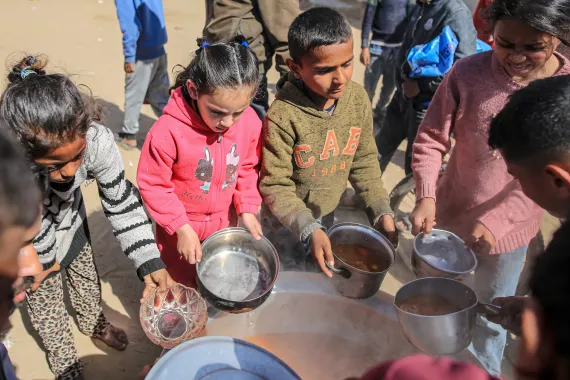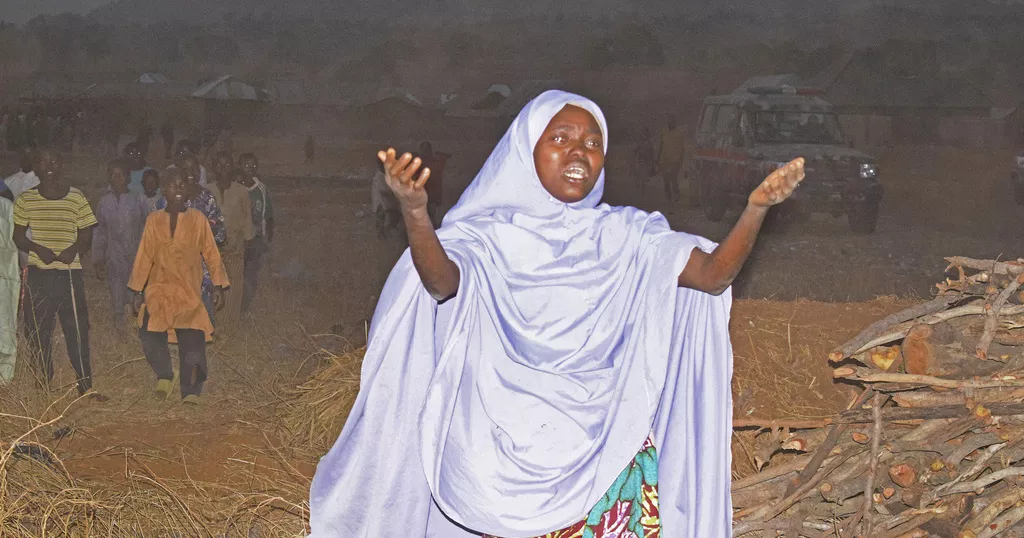Similar complaints have been voiced by farmers in Spain, France, Belgium, the Netherlands, Italy, and other nations where protests have been taking place lately.They claim that the EU’s Common Agricultural Policy (CAP) rules, in addition to exorbitant fuel and energy expenses, make it impossible for them to turn a profit.”Producing wheat and barley comes at a very high cost,” protesting in Aranda de Duero was Esteban, a cereal farmer who wished to remain anonymous. “We’re dying because you have to pay for fuel, fertilizer, and pesticides. Despite paying extremely high prices, we nevertheless sell
They also staged protests in the western region of Extremadura, the southern region of Andalusia, and the northeastern region of Catalonia.Similar complaints have been voiced by farmers in Spain, France, Belgium, the Netherlands, Italy, and other nations where protests have been taking place lately.They claim that the EU’s Common Agricultural Policy (CAP) rules, in addition to exorbitant fuel and energy expenses, make it impossible for them to turn a profit.
“Producing wheat and barley comes at a very high cost,” protesting in Aranda de Duero was Esteban, a cereal farmer who wished to remain anonymous. “We’re dying because you have to pay for fuel, fertilizer, and pesticides. Despite paying extremely high prices, we nevertheless sell.French farmers who were protesting claimed that Spanish producers were undercutting them by not adhering to all EU regulations. Ségolène Royal, a former French minister, stirred up controversy last week when she asserted that organic tomatoes grown in Spain were “false organic”. The Spanish food and farming industries reacted angrily when Prime Minister Pedro Sánchez asked Ms. Royal to sample a Spanish tomato.
Nonetheless, Spain’s agriculture industry responds with a similar critique to non-EU nations, citing Morocco as an example, whose southern neighbor, it claims, is exempt from the same hygienic and environmental laws as European farmers, enabling it to sell cheaper produce.Livestock and cereal farmer Estrella Pérez said, “We have to go through a lot of controls, a lot of sanitary regulations which products from [non-EU countries] are not subject to.””We just want a future for farming and right now, we don’t see it.”The drought has made things worse for Spanish farmers. Harvests are being impacted by the fact that many parts of the nation have not had enough rain in recent months. Although Spain is the world’s largest producer of olive oil, low production has driven up prices. The longest drought in recorded history, spanning three years, forced Catalonia to declare a state of emergency last week.

In other parts of Italy, farmers have been congregating for a week in a protest against EU regulations and bureaucracy. By the end of this week, they intend to gather in Rome.They have the support of Prime Minister Giorgia Meloni, who claims that farmers will be disproportionately affected by the EU’s Green Deal. However, the government’s intentions to stop providing tax breaks to the agriculture industry also worry farmers.President of the European Commission Ursula von der Leyen declared on Tuesday that she intended to revoke a proposal to reduce the use of pesticides, calling it “a symbol of polarization.”In light of his commitment to completing the Green Deal, Belgian Prime Minister Alexander De Croo hailed the announcement, stating that it was “crucial we keep our farmers on board to a more sustainable future of farming.”
BBC



